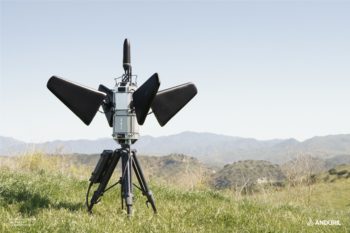
The US Capitol. (Photo by Anna Rose Layden/Getty Images)
WASHINGTON — The House today passed the compromise version of the annual defense policy bill with a vote of 310-118, which ducked several of the contentious culture war issues included in the House’s original bill and also provided a last-minute ride to extend an equally contentious law concerning intelligence surveillance.
With the Senate having passed the Fiscal Year 2024 National Defense Authorization Act Wednesday night, the bill will now go to President Joe Biden’s desk for a final signature.
Among the key provisions in the NDAA, which has a topline of $886 billion, are several related to the trilateral security pact known as AUKUS. Crucially for that arrangement, it authorizes the Defense Department to transfer up to three Virginia-class submarines to Australia, but only after one year elapses from the date the legislation is passed. (Navy leadership has previously said the first transfer is not scheduled to occur until 2032.)
“For the first time ever, [the NDAA] authorizes the actual sale of nuclear-powered submarines… to Australia,” Rep. Joe Courtney, D-Conn., told reporters moments after the bill cleared the House floor. “That’s never happened before. There’s a lot more work to be done in terms of making that a reality, but Congress gave its blessing to allow this very unique and unprecedented step to be taken amongst the three countries.”
Elsewhere, the authorization bill largely keeps Army programs intact and provides the service with permission to spend additional dollars on a few key programs. It also saved some F-22s destined for the boneyard and requested more clarification for who’s doing what in the Pentagon’s sprawling JADC2 effort.
MORE: AUKUS, JADC2, planes and tanks: What’s in the draft NDAA
While the bill saw strong bipartisan support during debate this morning on the House floor, a group of Republicans opposed the bill because it extends a law, the Foreign Intelligence Surveillance Act, that permits the Intelligence Community to surveil foreign entities in the United States that could be a threat to national security. The lawmakers opposing its extension argued those powers have been wrongfully abused to spy on American citizens.
Although the NDAA’s passage will surely be welcomed by those at the Pentagon, it’s not clear when the House and Senate will pass the annual spending bills, which are necessary in order to lift the ongoing continuing resolution.Also unclear, is when or if lawmakers will ultimately fund all or part of the White House’s $106 billion supplemental request to support Ukraine, Israel and the submarine industrial base.






















